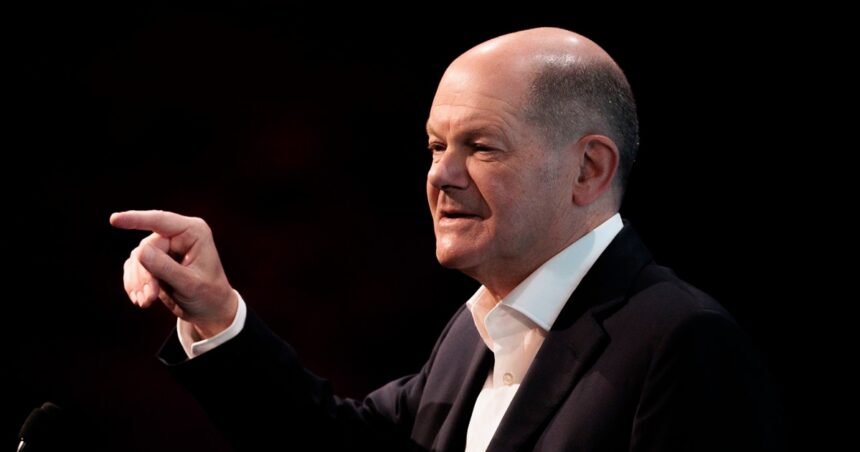Germany’s government coalition collapses in dramatic fashion as Chancellor Olaf Scholz fires finance minister Christian Lindner of the pro-business Free Democrats late at night after a marathon crisis meeting .
In response, the three remaining Lib Dem ministers resigned, leading to the collapse of the government coalition. Scholz is expected to lead the country in a minority government, but the opposition has called for an immediate vote of no confidence.
But earlier on Thursday, Liberal Democratic Transport Minister Volker Wissing unexpectedly retracted his resignation last night, telling reporters that after speaking with Scholz, he had decided to continue as minister and Quit the party.
Lindner will receive certification of President Frank-Walter Steinmeier’s dismissal on Thursday afternoon and a successor will likely be appointed immediately to ensure a smooth transition. German news agency dpa reported that Scholz’s economic adviser Jörg Kukis will become the next finance minister.
The positions of the resigned research minister and justice minister may also be filled on Thursday, dpa reported.
Later on Wednesday, Scholz announced that he would seek a confidence vote on January 15, which he said could lead to snap elections as early as March that would otherwise be held next September.
Scholz accused Lindner of violating his trust and publicly called for fundamentally different economic policies, including what the chancellor said would be billions of dollars in tax cuts for a handful of high earners while cutting pensions for all retirees.
“It’s not very respectable,” Scholz said.
Scholz’s left-leaning Social Democrats will now effectively lead a minority government along with remaining coalition partner the environmentalist Greens.
The German chancellor announced late Wednesday that he would contact Friedrich Merz, leader of the largest opposition in parliament and the center-right Christian Democrats, to discuss possible ways to strengthen the economy and defense and pass important legislation in parliament .
But Merz on Thursday strongly rejected Scholz’s plan to wait until January for a confidence vote.
“The coalition no longer has a majority in the Bundestag, so we call on the German Chancellor (…) to hold a vote of confidence immediately or at the latest early next week.”
Merz added: “We simply cannot afford a government in Germany for several months without a majority, followed by months of campaigning and then possibly weeks of coalition negotiations.”
He said he planned to meet with Scholz later Thursday to push for a quick confidence vote.
Since Scholz’s government no longer has a majority in parliament, he is likely to lose votes. In this case, the German president could dissolve parliament within 21 days, and then hold snap elections as soon as January.
“In these 21 days, we will have enough time to understand whether there are any issues that we need to decide together,” Merz said, saying his party would work with the minority government. “Of course we are ready to hold talks (..) We are also ready to take responsibility for our country.”
Indeed, it will not be easy for Scholz’s Social Democrats and Greens to push through new legislation and close a billion-euro hole in the 2025 budget now that their governments no longer have a majority in parliament. But Scholz said his administration needs time to pass important legislation.
Achim Wambach of the Leibniz Center for European Economic Research expressed doubts that a long-term minority government can help the German economy get back on track.
“Germany’s problems are too big to tolerate political deadlock,” the analyst said.
“The government set out to reconcile the transition to climate neutrality with economic growth and social security,” the analyst said in a statement. “It fell short. The economy stalled and investment failed to materialize. .
“This difficult task has been exacerbated by geoeconomic tensions: wars in Europe and the Middle East and economically destructive interventions through tariffs and state subsidy policies,” he added. “The election of Donald Trump has exacerbated these problems . Europe must do more for its own security and must consider increasing tariffs.
The alliance collapsed after weeks of wrangling between alliance partners over how to boost the country’s struggling economy.
Lindner’s pro-business Free Democrats have refused to increase taxes or change Germany’s strict self-limits on debt increases. Scholz’s Social Democrats and Greens want to see significant state investment and have rejected proposals by the Free Democrats to cut welfare programmes.

